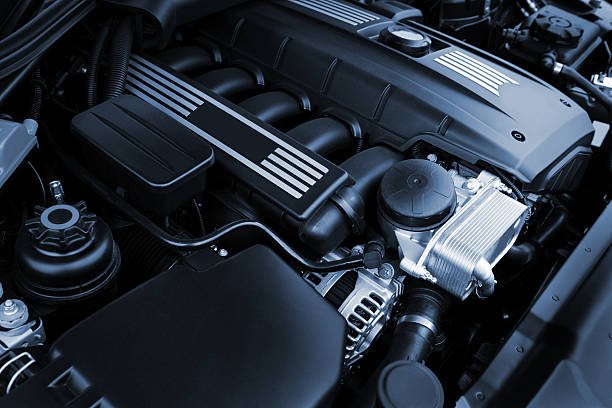How “No Money Down” Financing Works for Buyers with Bad Credit
Financing a vehicle with limited or poor credit can feel overwhelming — but some dealerships and lenders offer “no money down” programs designed to help qualified buyers get behind the wheel. This guide explains how these financing options work, what credit factors lenders consider, and what buyers should know before applying.

Understanding How No Money Down Car Financing Works
No money down car financing allows buyers to purchase a vehicle without making an upfront cash payment. Instead, the entire purchase price, along with taxes, fees, and sometimes additional costs, gets rolled into the loan amount. For buyers with bad credit, this option can be attractive because it eliminates the immediate financial barrier of saving thousands of dollars for a down payment.
Lenders offering these programs typically compensate for the increased risk by charging higher interest rates or requiring longer loan terms. The loan-to-value ratio becomes crucial here, as financing 100% or more of the vehicle’s value means the borrower is immediately underwater on the loan. This situation occurs when the amount owed exceeds the car’s actual worth, particularly as new vehicles depreciate rapidly in the first year.
Buy Here Pay Here dealerships and subprime lenders frequently advertise no money down options specifically targeting credit-challenged buyers. These financing arrangements often include stricter terms, such as GPS tracking devices or bi-weekly payment schedules, to mitigate the lender’s risk exposure.
Car Dealerships That Finance Bad Credit
Several types of dealerships specialize in working with buyers who have poor credit scores. Buy Here Pay Here lots handle financing directly, eliminating third-party lenders and making approval decisions based primarily on income verification rather than credit history. These dealerships typically report payments to credit bureaus, offering buyers an opportunity to rebuild their credit through consistent payments.
Franchise dealerships with special finance departments partner with subprime lenders who focus on higher-risk borrowers. These departments have relationships with multiple lending institutions that evaluate applications using alternative criteria beyond traditional credit scores. National chains like CarMax and AutoNation maintain special finance programs, though approval and terms vary significantly based on individual circumstances.
Credit unions sometimes offer more flexible lending criteria for members with imperfect credit, though they typically require at least a small down payment. Online lenders such as Capital One Auto Navigator and Carvana provide pre-qualification tools that allow buyers to understand their financing options before visiting dealerships, helping them negotiate from a position of knowledge.
Credit Score Factors for Auto Loans
Lenders evaluate multiple components of credit scores when determining auto loan eligibility. Payment history carries the most weight, accounting for approximately 35% of most scoring models. Even a single late payment can significantly impact approval odds and interest rates for subprime borrowers.
Credit utilization, which measures how much available credit is being used, represents about 30% of the score calculation. High balances relative to credit limits signal financial stress to lenders. Length of credit history contributes roughly 15%, with longer histories generally viewed more favorably. Recent credit inquiries and the mix of credit types round out the remaining factors.
For auto loans specifically, lenders often use FICO Auto Scores, which weight automobile-related payment history more heavily than general FICO scores. A borrower might have a general FICO score of 580 but an Auto Score of 620 if their car payment history has been strong, potentially opening doors to better financing terms.
Subprime lenders typically work with scores ranging from 300 to 600, though the exact cutoffs vary by institution. Deep subprime borrowers with scores below 500 face the most restrictive terms, while those in the 580-620 range may qualify for more moderate interest rates, particularly with compensating factors like stable employment or higher income.
Understanding Down Payment Requirements
While no money down financing exists, understanding typical down payment expectations helps buyers recognize what they’re avoiding and the trade-offs involved. Traditional lenders generally prefer down payments of 10-20% of the vehicle’s purchase price. This equity cushion protects the lender if the borrower defaults and the vehicle must be repossessed and sold.
For buyers with bad credit, many lenders recommend down payments of at least 10% to improve approval chances and secure better interest rates. Each additional dollar put down reduces the loan-to-value ratio, lowering the lender’s risk and potentially saving thousands in interest over the loan term.
Zero-down programs eliminate this upfront cost but create immediate negative equity. If a buyer finances $25,000 for a vehicle worth $23,000 after driving it off the lot, they owe $2,000 more than the car’s value from day one. This situation becomes problematic if the buyer needs to sell or trade the vehicle before the loan balance drops below its market value.
Some dealerships advertise no money down but build hidden costs into the vehicle price or add-on products like extended warranties, gap insurance, or maintenance plans. Buyers should carefully review the total financed amount and compare it to the vehicle’s fair market value using resources like Kelley Blue Book or Edmunds.
Real-World Auto Financing Comparison
Different lenders offer varying terms for buyers with bad credit seeking no money down financing. The following table provides examples of typical programs available in the market:
| Lender Type | Typical APR Range | Loan Terms | Special Requirements |
|---|---|---|---|
| Buy Here Pay Here | 15-25% | 24-48 months | GPS tracking, bi-weekly payments |
| Subprime Lenders | 12-20% | 48-72 months | Proof of income, references |
| Credit Unions | 8-15% | 36-60 months | Membership, small down payment often required |
| Franchise Dealership Special Finance | 10-18% | 60-84 months | Employment verification, higher income requirements |
| Online Lenders | 11-19% | 48-72 months | Pre-qualification, may require co-signer |
Prices, rates, or cost estimates mentioned in this article are based on the latest available information but may change over time. Independent research is advised before making financial decisions.
Preparing for Auto Loan Approval
Successful preparation significantly improves approval chances even with poor credit. Start by obtaining free credit reports from all three major bureaus through AnnualCreditReport.com and reviewing them for errors. Disputing inaccuracies can quickly boost scores by removing incorrect negative items.
Gather documentation proving stable income and employment. Lenders want to see at least six months of consistent employment, with longer tenure viewed more favorably. Pay stubs, tax returns, and bank statements demonstrating regular deposits strengthen applications. Self-employed buyers should prepare additional documentation including profit and loss statements.
Reduce existing debt where possible before applying. Paying down credit card balances improves debt-to-income ratios, a critical metric lenders evaluate. Aim for a debt-to-income ratio below 40%, though some subprime lenders accept ratios up to 50% with strong compensating factors.
Consider enlisting a creditworthy co-signer if possible. A co-signer with good credit can dramatically improve approval odds and secure substantially lower interest rates, potentially saving thousands over the loan term. However, both parties should understand that the co-signer becomes equally responsible for the debt.
Set a realistic budget before shopping. Calculate the maximum monthly payment affordable after accounting for insurance, fuel, maintenance, and other vehicle-related expenses. Many buyers focus solely on qualifying for the loan without considering whether they can comfortably sustain the payments long-term, risking default and further credit damage.
Making Informed Financing Decisions
No money down financing for buyers with bad credit serves a legitimate purpose for those who need transportation but lack savings for a down payment. However, these programs come with higher costs and risks that require careful consideration. Buyers should compare multiple offers, understand all terms and conditions, and ensure the monthly payment fits comfortably within their budget. Building even a small down payment, if possible, can significantly improve loan terms and create a more sustainable financial arrangement. With proper preparation and realistic expectations, credit-challenged buyers can secure financing while beginning the process of rebuilding their financial standing through consistent payments.




